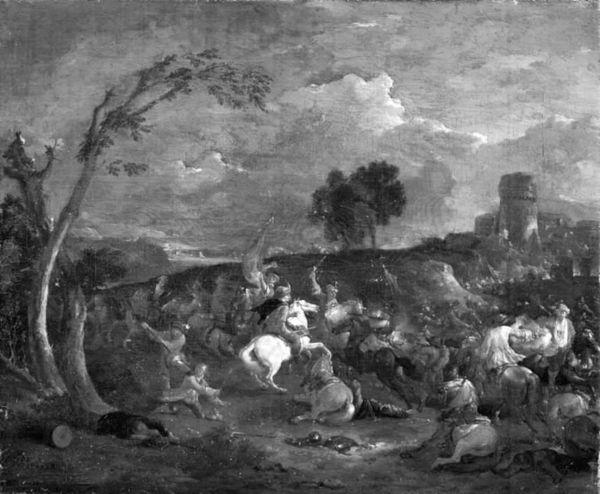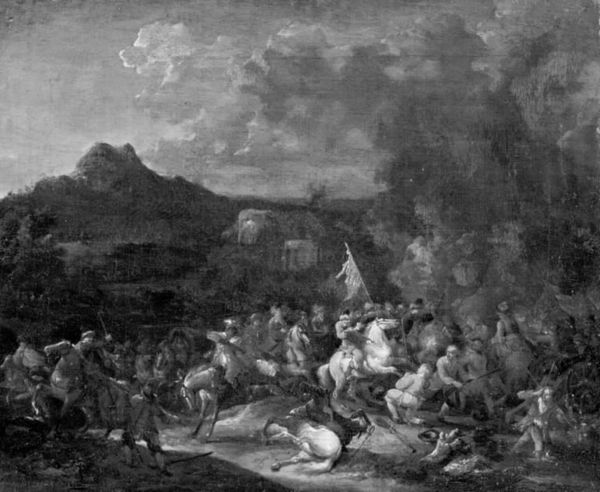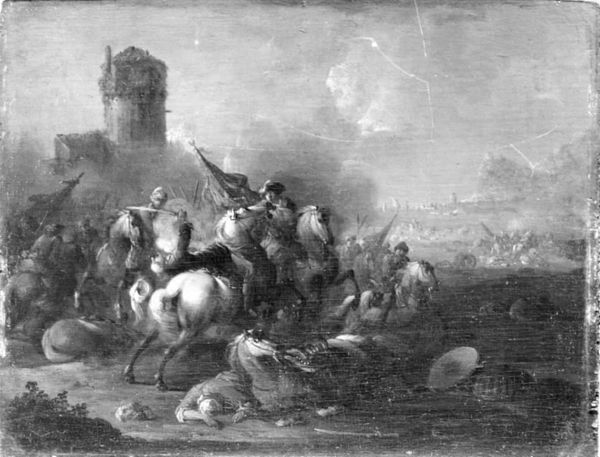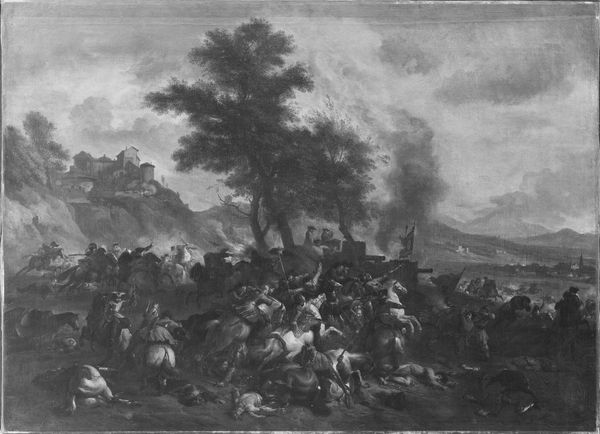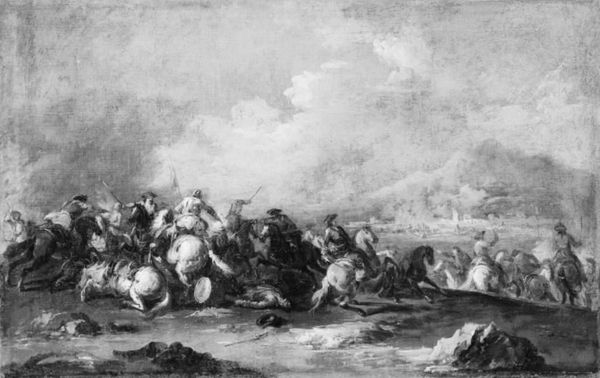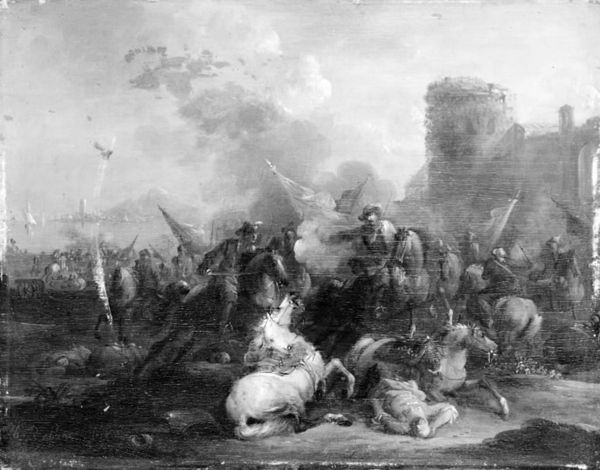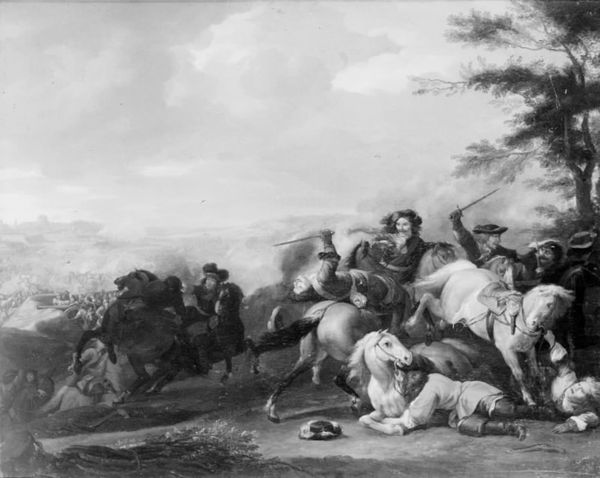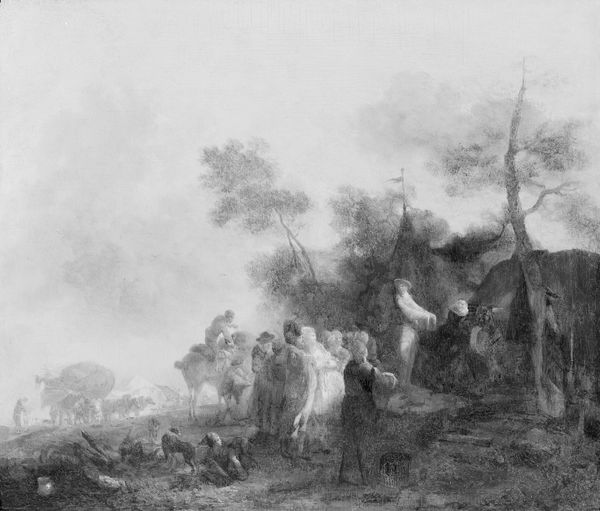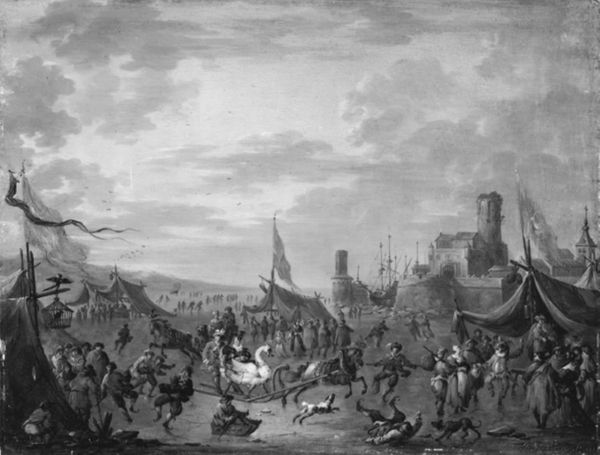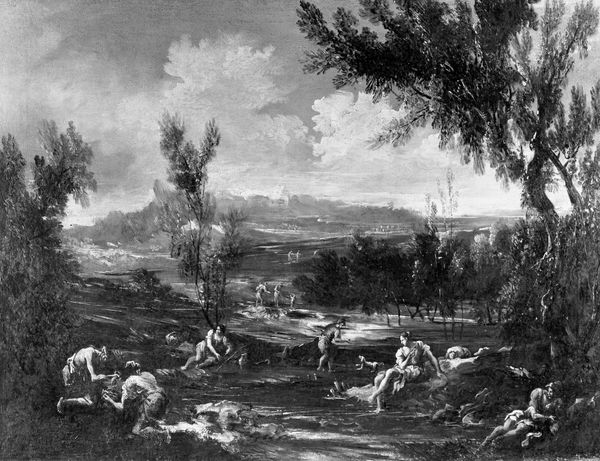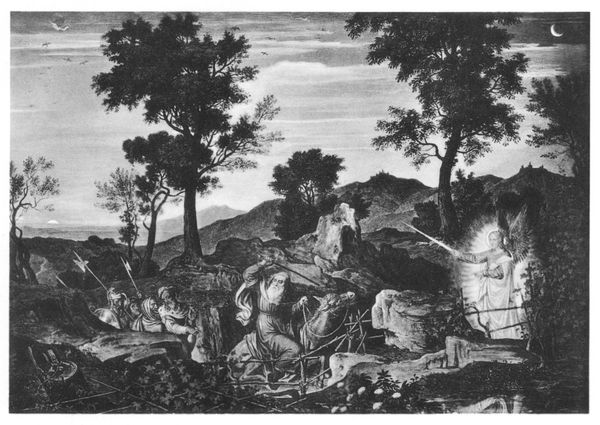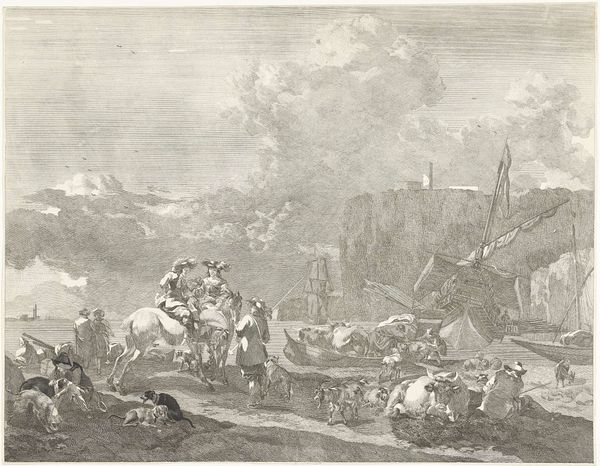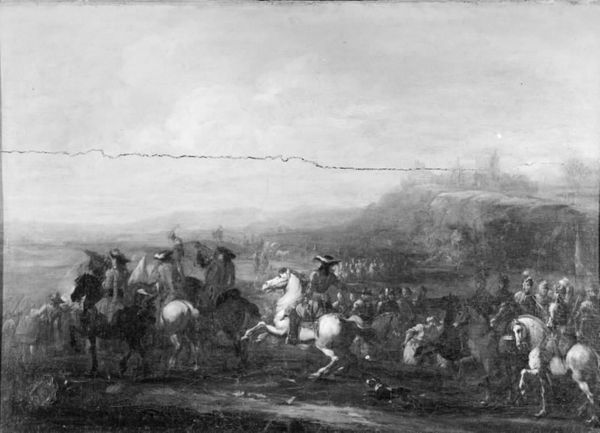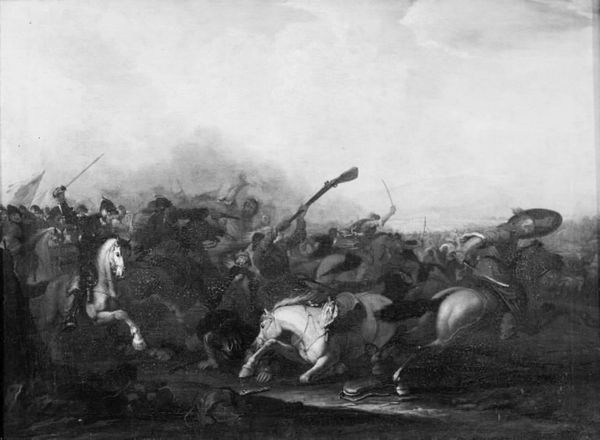
painting, canvas, graphite, charcoal
#
baroque
#
painting
#
landscape
#
charcoal drawing
#
figuration
#
canvas
#
graphite
#
charcoal
#
history-painting
#
charcoal
#
graphite
Dimensions: 43 cm (height) x 64.5 cm (width) (Netto)
Editor: This anonymous painting from between 1636 and 1775, titled "Battle Scene," is intense! It's all swirling chaos, horses rearing, smoke everywhere... What do you see in this piece beyond the obvious drama? Curator: Beyond the immediate visual impact, I see a representation of power dynamics, but also, importantly, the cost of conflict, even when cloaked in historical grandeur. Considering the timeframe, it resonates with larger conversations around imperialism, colonialism, and their associated violence. It makes me wonder, whose story is actually being told? Editor: You're right, it feels almost like propaganda, or at least an idealized vision of war. I hadn’t considered it in terms of colonialism though. Curator: Exactly! The way history painting often sanitizes and glorifies conflict needs to be unpacked. How does the composition itself, with its emphasis on movement and obscured figures, contribute to this sense of idealization, or perhaps even to dehumanization? What do we really know about the individuals involved? Editor: That’s a powerful question. Thinking about the ‘facelessness’ of the fighters, maybe it comments on the anonymity of soldiers within these grand historical narratives. I never thought about Baroque battle scenes that way! Curator: The ‘facelessness’ also resonates with how marginalized voices have been erased from official accounts of history. Who isn't represented in this depiction of power? Recognizing these omissions is a crucial step towards a more critical and inclusive understanding of our shared past and the legacies represented in art. Editor: It's a little unsettling now, seeing the painting not as just a battle, but as a stage for something much bigger... and darker. Thanks for offering that lens. Curator: And thank you for engaging with the difficult questions it provokes. Ultimately, art serves as a catalyst for critical thought and societal reflection, especially, if it invites us to rethink established grand narratives.
Comments
No comments
Be the first to comment and join the conversation on the ultimate creative platform.
